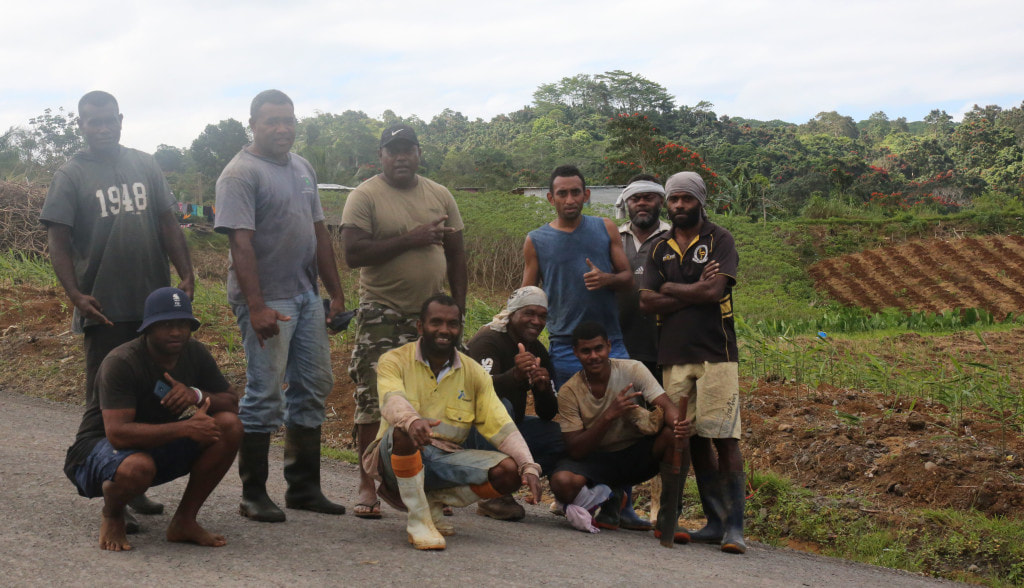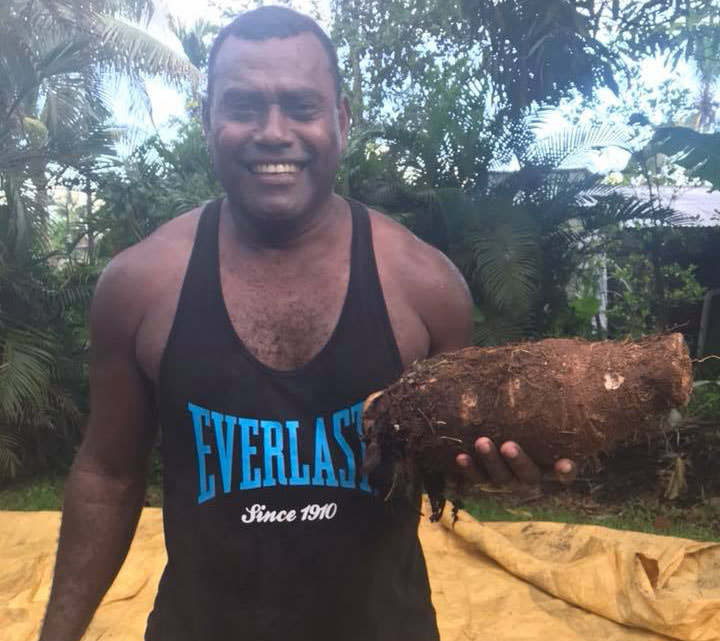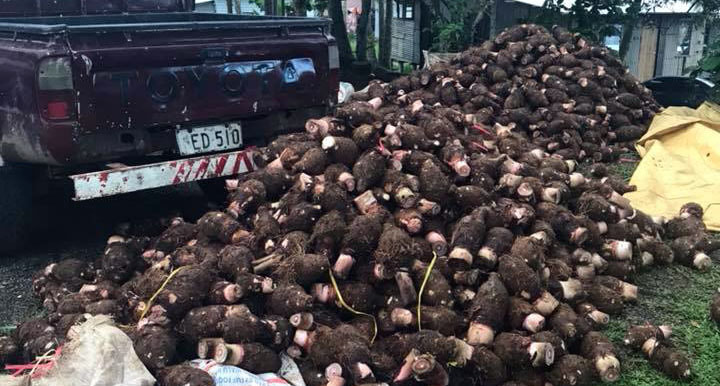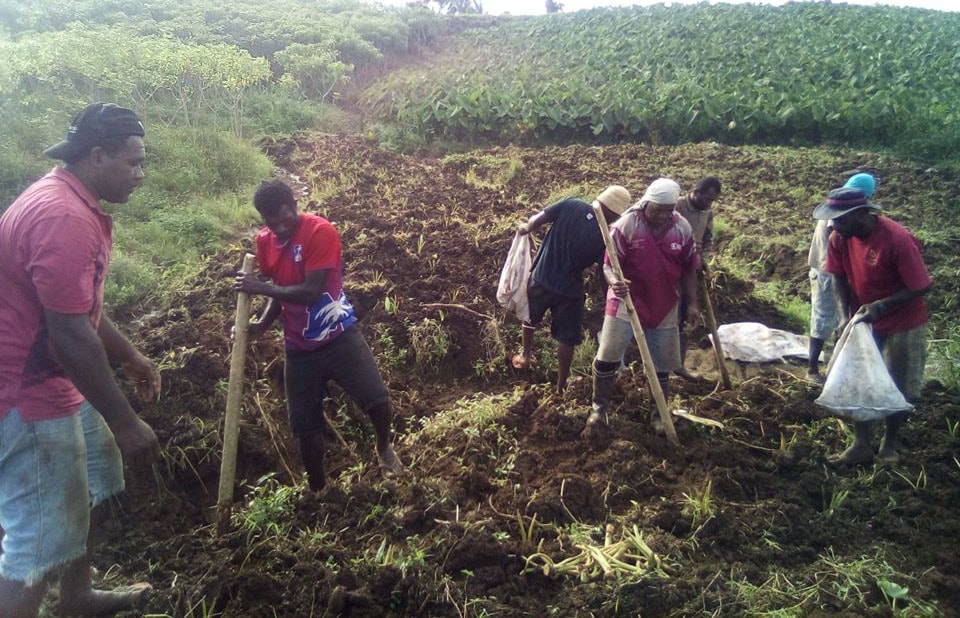|
Published by The Pacific Business Hub | By Ivamere Nataro You don’t have to go through the formal education system to earn the “big bucks”. Commercial farmer, Anasa Tawake, knows this. He did not have the privilege of acquiring formal education, but today he earns more than a white-collar worker would do annually from his 50-acre farm. While the concept of large scale commercial farming may not sound like a lucrative and sustainable source of income for some, the 48-year-old from Kalabu, Naitasiri, knows the value of the land and its benefits when he invests his time and assets. ABOUT THE COMMERCIAL FARM Mr Tawake has been a commercial farmer for 34 years. He has a 30-acre farm in Veikoba, an eight-acre farm in Sakoca, and two six-acre farms in Delaivalelevu and Natila, Tailevu. He plants dalo, ginger and cassava as it’s easy for him to manage compared to farming vegetables. He recently planted 7,800 yaqona plants in Natila, Tailevu. For last year alone, he recorded a profit of $133,000. “When I harvest my crops, sometimes I earn $27,000 – $30,000 and that’s for dalo alone. For ginger, last year I earned $73,000, that’s from our farm in Veikoba,” he said. “I sell cassava in bags every day. I can sell eight bags in one day and from that, I earn about $400, which I use to pay my workers.” Mr Tawake harvests dalo eight to 10 times in a year and ginger only once when it is mature. Annually, he would spend $60,000-$70,000 on purchasing manure, contracting workers, hiring machines and paying for fuel and ration for the workers. He pays $150 weekly to each of his 10 permanent workers. In a year, $70,000 – $80,000 is set aside for wages. “I also raise cows and pigs for both commercial and domestic purposes." “Sometimes I keep some [cattle and pigs] in cases of family gatherings so that I don’t get to use money as well to buy cows or pigs from other places." “When I buy a cow, I can get it for $100 – $150, and then raise it because buying from other farmers for our family gatherings would cost me $700-$800 for just one cow.” BENEFITS OF FARMING The father of six is married to Sereana from Nasau, Koro in Lomaiviti. It’s through his farm that he’s able to put his children through school, with two already graduated from tertiary studies and now working. “This year I won the award for the largest dalo farmer of the year from the Ministry of Agriculture." “I thought I was going to scoop both dalo and ginger but unfortunately I was competing with the Chinese and Indo-Fijian farmers.” CHALLENGES OF FARMING “First is the change in weather patterns that damages our crop, second is the manure. A lot of times there’s a shortage but I don’t lose faith because through my farm I am able to financially support my family so I dedicate my time and energy in managing my farm." “The other one is stealing. This is a problem, especially the young people stealing from other people’s farms.” Mr Tawake said at times the price of dalo was unfair to farmers. “Sometime 1kg dalo is $2.50-$3 but when it hits $4 or $5, we are happy because we make money.” “Don’t depend too much on the assistance from the Government. If the Government helps only once, that’s OK, but the onus is now on you to do the work.” RE-INVESTMENT “I am also helping out my workers in terms of business and I have also subdivided my farm among them. I want them to have cars and houses. It started last year and this year it’s going really well." “I reinvest my money in growing my farm. Many people, when they earn from their farms, they use their money to buy other things rather than reinvesting their time and money on their asset." “At one stage I had $70,000 in my bank account and I thought of getting a Land Cruiser, most of us we are attracted by what we see, like me, but then I thought, maybe I will focus on building houses to rent out." “I have so far used $110,000 in building a house to rent out and I will do more of such in the future.” Mr Tawake said building and renting out houses were his financial backup plan when there came a time that he needed to retire from farming." He does not receive assistance from the Ministry of Agriculture, but he helps other farmers by supplying ginger seedlings and dalo tops such as in Ketei village in Totoya, Lau, and Natila village, Tailevu. “Most farmers go to the Ministry of Agriculture in Nausori for advice and they are directed to me, and when I explain to them about the method and benefits of farming and working the land, many resign from their jobs." HOW EVERY DAY STARTS FOR TAWAKE
“I am always happy when I wake up every morning because I get to see my farm. It’s just like those who work in the office; they wake up every morning and look forward to working in their office. That’s just like me because I know my farm is earning money." “When I get up every morning, I pick up my workers and drop them off at the farm by 8 o’clock and then around 10 o’clock or 11o’clock, I come home to have breakfast and then I head back to the farm and do some work." “My workers get one and a half-hour rest and finish work at 5pm.” TAWAKE'S BACKGROUND Mr Tawake comes from a family line of farmers. His dad and forefathers were farmers. “When we grew up in [Kalabu] many of us just looked to the land for a source of income." “For me, I am the only one in this generation living in this area to be fully utilising the land. I have four brothers. One works and the three of us farm." “Our elders were not large commercial farmers; instead they sell along the roadside and small markets just to get by in a day.” TAWAKE'S ADVICE Use the land, he said. “If you work somewhere and you earn less, and if you have a land, just go back to utilising your land. Because nowadays earning $300 is not enough to cater for the high cost of living we are experiencing." “Government has done great help for the people; the only problem is the individual farmer." “Don’t depend too much on the assistance from the Government. If the Government helps only once, that’s OK, but the onus is now on you to do the work.” Even if it’s a vegetable farm in your backyard, Mr Tawake said, utilise the land.
2 Comments
|
AuthorThe Pacific Business Hub Archives
July 2022
Categories |






 RSS Feed
RSS Feed
